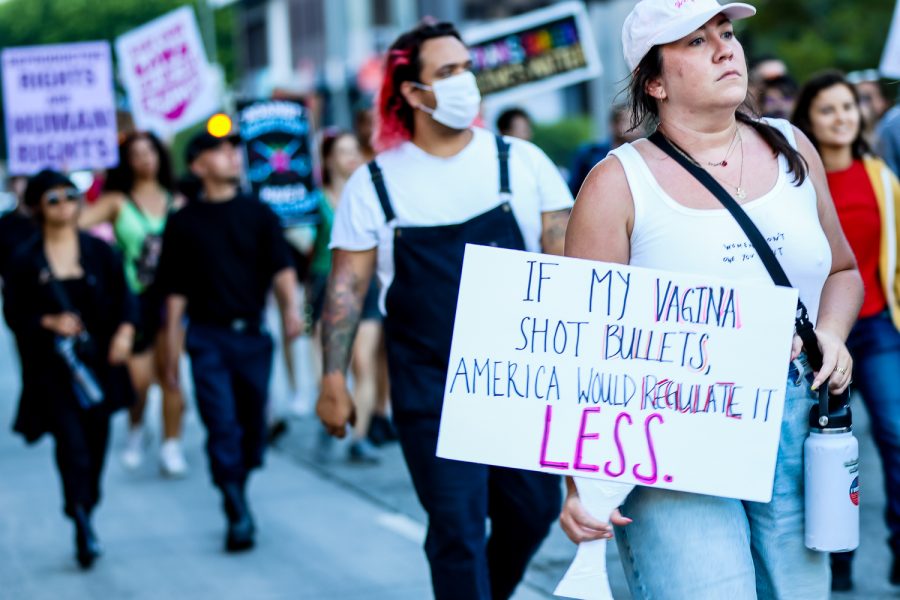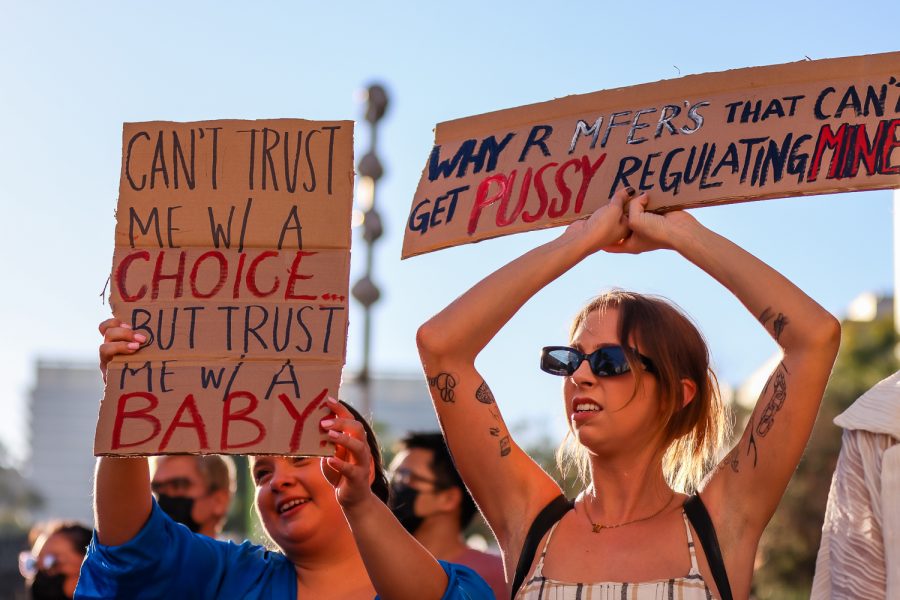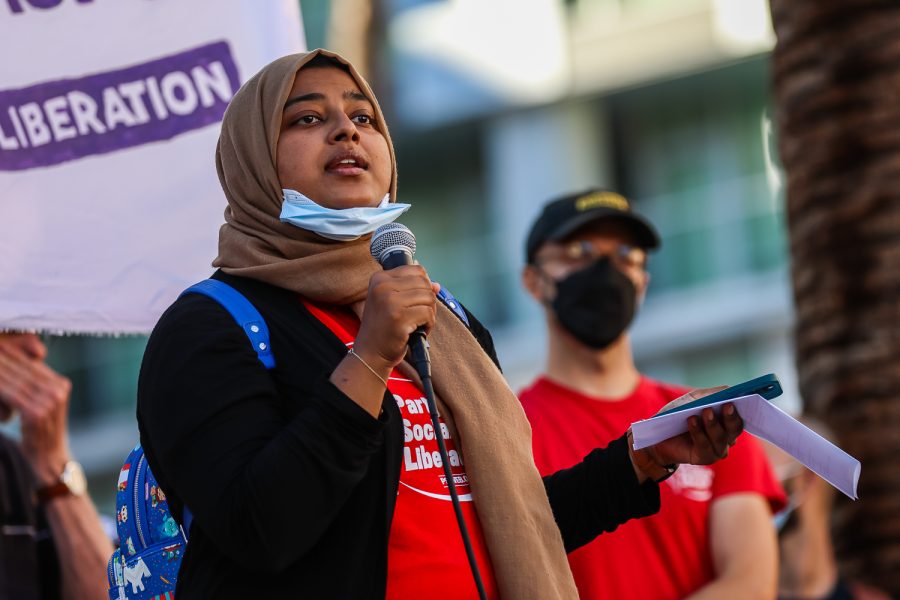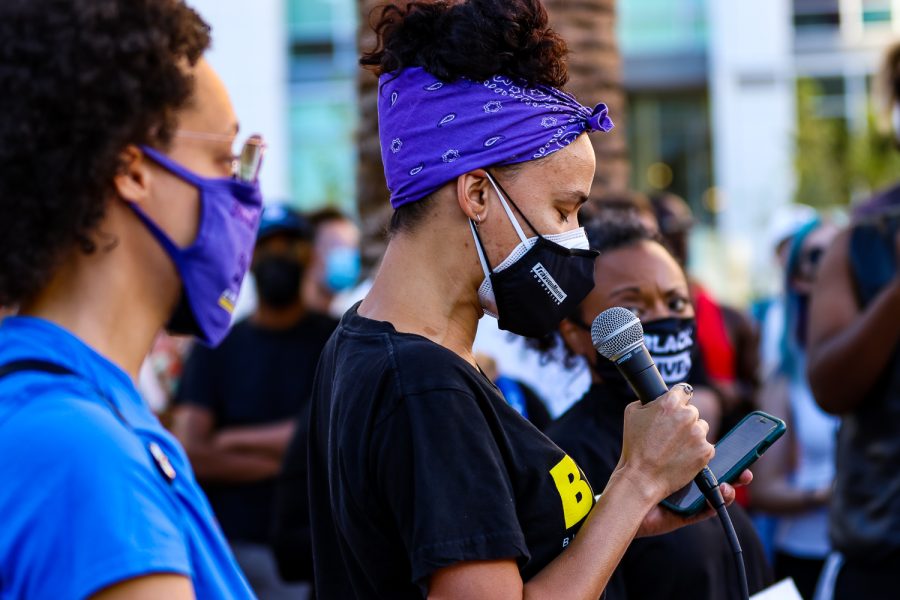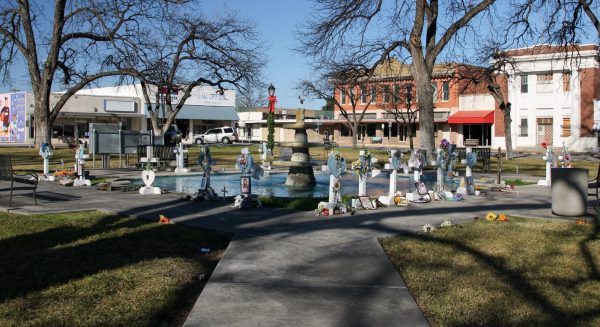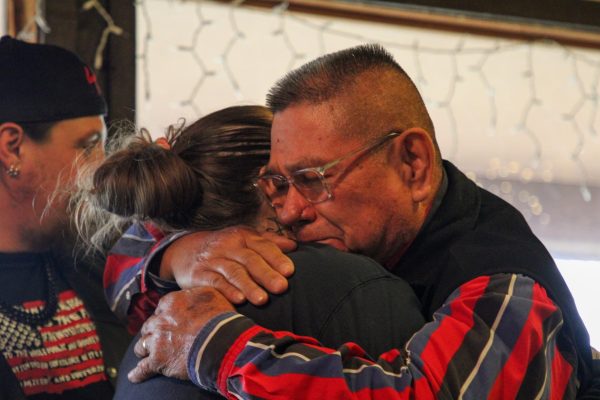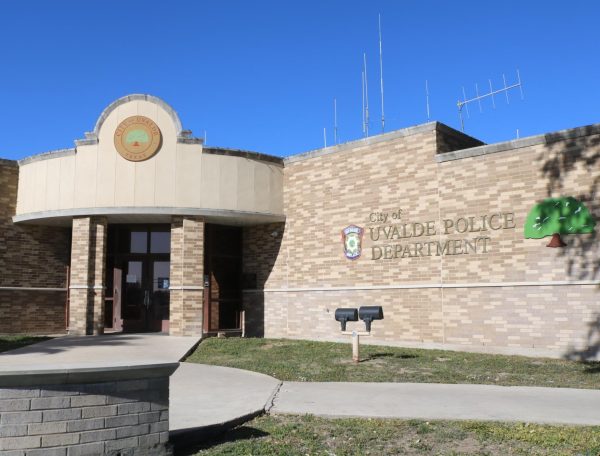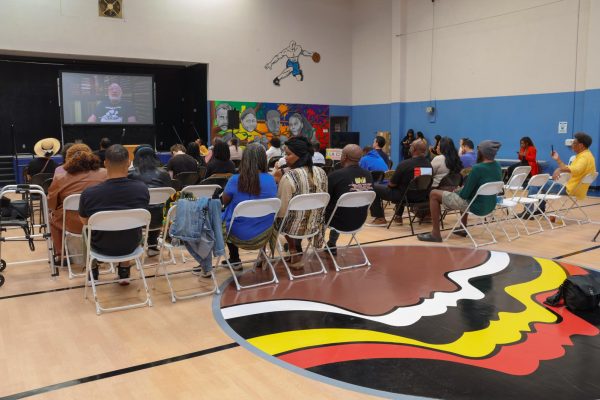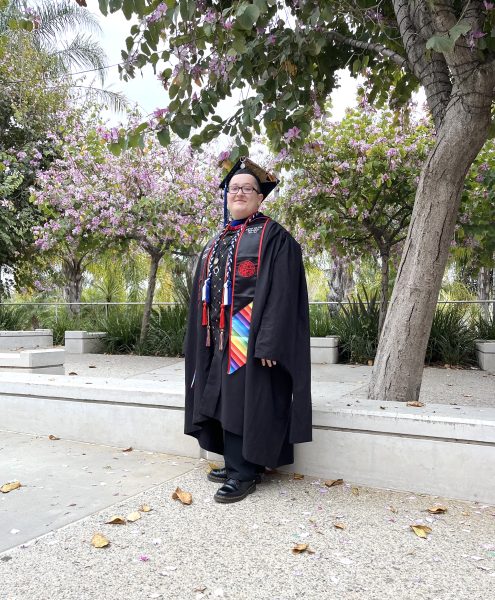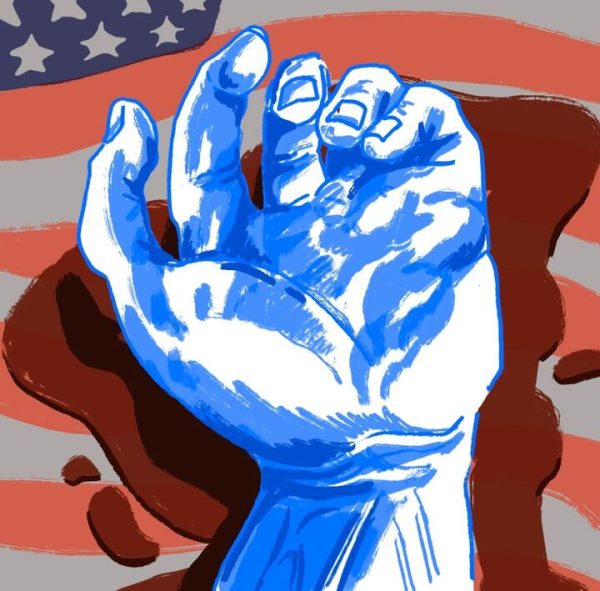Thousands gather to protest overturning of Roe
Protesters march through the streets of downtown Los Angeles, Calif., on June 24, 2022, after the U.S. Supreme Court decision to overturn Roe v. Wade.
July 1, 2022
Thousands gathered in Pershing Square on South Hill Street and Fifth Street in Los Angeles, California, on Friday, June 24, 2022, in response to that morning’s announcement of the U.S. Supreme Court ruling that overturned Roe v. Wade.
As the sun fell from the sky and the city lights trickled across the skyscrapers of downtown Los Angeles, minutes before the clock hit 10 p.m. and a bang echoed across Pershing Square.
Multiple social and political groups, as well as individual citizens exercising their First Amendment rights, were in attendance.
What started as peaceful demonstrations eventually led to clouds of green tear gas and multiple Los Angeles Police Department cars sailing down Hill Street after a public declaration of unlawful assembly. Around 8:45 p.m. dozens of protesters took to the 110 freeway and a firework was ignited as police closed in on the intersection of Main Street and Fourth Street.
What is Roe v. Wade?
Roe v. Wade became the foundation of the country’s practice surrounding abortion rights in 1973. This set a nationwide precedent that women have a fundamental right to abortion access. The court ruled this decision based on the 14th Amendment.
According to Section 1 of the 14th Amendment, “No State shall make or enforce any law which shall abridge the privileges or immunities of citizens of the United States; nor shall any State deprive any person of life, liberty, or property, without due process of law; nor deny to any person within its jurisdiction the equal protection of the laws.” Under this, there is a due process clause that protects a citizen’s right to privacy.
This posed a potential conflict of government interest and protecting women’s rights so the court ruled to have regulations based on trimester. Though this enabled a woman’s right to reproductive health care, it gave states freedom to place their own regulations on abortion access.
How it Impacts the States:
The Supreme Court ruling has always left it to individual states to make the laws surrounding abortion rights. Without this federal precedent those born with a uterus are at risk of losing all rights to legal abortion access. Most states already had limited reproductive health care protections in place prior to the overturning of Roe v. Wade.
States such as Wisconsin, Michigan, Alabama and West Virginia have had abortion bans prior to the Roe decision in 1973. Other states like Iowa, Ohio, Georgia and South Carolina have always had abortions bans after six weeks. Some states have already went back to the abortion bans while others are soon to follow.
Texas, Oklahoma, Arkansas and Mississippi have multiple laws banning abortion, with exceptions of danger to maternal life and incidents of rape. Many other states have trigger laws, or pre-made laws, that would completely ban abortion. These abortion laws have remained dormant, waiting to be “triggered” by the decision to overturn Roe v. Wade.
Those who took to the streets of Los Angeles stood in solidarity with the other states. California will become a “safe” state to those born with a uterus seeking reproductive health care. California is expected to recieve over 10,000 out-of-state individuals seeking reproductive and abortion health care, according to the UCLA School of Center on Reproductive Health, Law, and Policy.
“The millions of lives across the state will need us to struggle together with them. We must stand in solidarity with the 26 states that will surely ban the right to abortion with no exceptions,” said one of the first speakers at the event. “There is nothing ‘pro-life’ about banning life-saving health care procedures.”
California continues to make abortion access and women’s health care more accessible, as shown by a piece of current legislation that would amend the California Constitution and guarantee a woman’s right to an abortion.
California Governor Gavin Newsom tweeted on June 24, 2022, “Abortion is legal in California. It will remain that way. I just signed a bill that makes our state a safe haven for women across the nation. We will not cooperate with any states that attempt to prosecute women or doctors for receiving or providing reproductive care.”
The California Proclaimation on Reproductive Freedom from the state’s Executive Department declared protection for rights to privacy, statutory and young women’s access to abortion, choice of a provider, and confidentiality in exercising choice.
Who this Impacts:
This historic event raises concerns for low-income families, youth, women of color, transgender men, and those living in other states, according to many of the activists in attendance. Those who marched on Friday held signs to spread this message.
Sheila Bates, an activist with Black Lives Matter Los Angeles, spoke before the march addressing the issue’s impact on Black women and trans men. The Black maternal mortality rate in 2020 ranked at 55.3%, more than 30% higher than the national average, based on data from the Centers for Disease Control and Prevention.
“Black people are impacted by this issue much like they are both impacted by every single other issue in this country,” Bates said.
The number of abortions in America decreased by nearly half from 1984 to 2019, according to statistics taken from several editions of the CDC’s Abortion Surveillance brought together by Statistica.
According to BMC Women’s Health, the common reasons for people seeking abortions showed that 40% of women were not prepared financially for a child, 31% were in unhealthy relationships with an unsupportive partner, 29% wanted to focus on the children they already have, while 20% were worried about how it would impact their future careers and education.
The overturning of Roe goes beyond abortions alone. Time will tell how individual states and companies will address the concerns of uterus-bearing-individuals; policies such as paid family leave, educational funding, comprehensive sex education, and access to free contraceptives are potential factors that could help individuals.
“Let me be clear, all abortions are valid,” Bates said. “The government continues to fail to provide for the material needs of the actual lives of people in this country, including health care. Abortion is health care, and health care is a human right.”
Marches continued to take place throughout the weekend.
